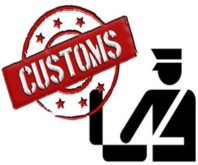What can you bring with you to Ecuador?
Before coming to Ecuador, you should check what items you are allowed to bring with you to Ecuador whether you are a tourist, resident, or Ecuadorian citizen. Below is a list of personal belongings you can bring without paying taxes. These are tax-free items:
- One new or used drone up to $500.
- Implements for older adults or people with disabilities, for passengers or their family members, in low volume for personal use.
- Vitamins.
- 4 kg of dietary supplements.
- 3 liters of alcoholic beverages per family.
- 3 different sports equipment and/or accessories.
- 2 musical accessories that are not with their main musical instrument.
- 2 accessories, one new and one used digital camera, video camera, mobile telephone, electronic agenda, portable or non-portable video game, electronic calculator, portable computer and its accessories.
- One new or used portable image reproducer, sound or video player, portable television up to 32 inches,
desktop and its accessories, projector, monitor up to 24 inches, telephone, printer or fax. - 400 cigarettes, 500 grams of tobacco, and 25 cigars.
- 300 milliliters of perfume per person and 600 milliliters of perfume per household.
Visitors can also bring a good or a set of goods not specified in the list as personal belongings up to $500.
Ecuador pet travel requirements
When preparing to transport pets to Ecuador, start by learning about the import requirements, checking into travel crates, and airline options. If you are planning to travel with pets to Ecuador, you will need:
- Pet health certificate issued by an authorized government veterinarian within 10 days of departure and approved by the local health authorities in the country of origin. The certificate must contain pedigree, species, sex, age, vaccinations, and license number of animals.
- The passenger must also hold the export license issued by the health authorities in the country of origin.
- In addition, dogs require a Rabies Inoculation Certificate issued within 3 months of arrival in Ecuador.
- A maximum of 2 pets allowed.
How many bottles of alcohol can you bring to Ecuador?
You can bring with you up to three liters of alcoholic beverages per family.
How much money can you bring with you to Ecuador?
Although there's technically no legal limit on how much money you can carry on a plane, if you're traveling internationally you must declare amounts of more than $10,000 on your customs form.
What articles you cannot bring to Ecuador?
Prior permission is required to bring below products to Ecuador:
- Processed food must be properly sealed or vacuum packed.
- Fresh or dry meat, uncanned meat products.
- All kinds of plants and vegetables must have previous permission from the "Ministerio de Agricultura y Ganaderia".
What you can take home from Ecuador?
It is illegal to bring out any pre-Columbian artifact from Ecuador, as well as cultural artifacts, animal products, including coral, bones, live or stuffed animals, etc. The thin rule applies whether you bought them, you discovered them, or they were given to you.
What to expect at customs in Ecuador?
Upon arrival to Ecuador, you just line up at immigration, they will verify the below documents, before giving you the T-3 90-day tourist stamp.
- A passport with at least 6-months validity.
- A return ticket (or ticket to another country) within 90 days of your arrival.
- Proof of funds to support you during your stay.
- Travel insurance that covers you for medical emergencies during your trip.
In addition, remember to fill out a customs form, which you hand in to the customs agent after you have collected your baggage. Some passengers are selected for an additional bag screen at that stage.
COVID19: All arriving passengers are required to have the results of a COVID PCR (polymerization chain reaction) test within the last seven (7) days before arriving in Ecuador. If the PCR test result is negative, visitors do not need to be quarantined. If visitors are considered "priority" groups (children, parentless teens, pregnant women, people with disabilities or serious illnesses, the elderly) they can quarantine at home. If the result of the PCR test is positive or if the passenger did not take the exam, they must comply with the mandatory preventive quarantine (APO) for 14 days upon the arrival. (Last updated June 26, 2020). For more updates, click here.





